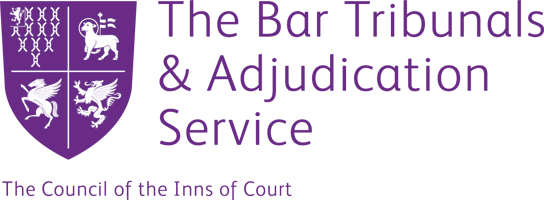-
Who we are
Click here for information about us
-
What we do
Click here for information on hearings
-
Virtual Tour
Click here for further information
NEW SANCTIONS GUIDANCE PUBLISHED
BTAS has published Version 6 of the Sanctions Guidance to come into effect on 1 January 2022. It is applicable to all sanction decisions taken on or after that date:
BTAS Sanctions Guidance Version 6 – January 2022
The main changes since the fifth edition are:
- A clearer and more structured approach to deciding the appropriate sanction
- Revised levels for fines and suspensions
- New “Misconduct Groups” for particular types of behaviour
- Revised ranges for particular sanctions; in particular, the lower end of the range for “Misconduct of a sexual nature” and for “Discrimination, non-sexual harassment and bullying” has been increased to 12 months suspension.
This version of the Sanctions Guidance stems from an extensive review of disciplinary cases and the sanctions imposed by other professional regulators and careful consideration of the responses to two consultations. BTAS is very grateful for the ten responses received to the second consultation. BTAS’s summary of and response to those responses can be found here:
BTAS Second Sanctions Consultation Response Paper
BTAS Guidance: In-Person & Online Hearings
BTAS provides both in-person and online hearing facilities subject to prevailing Government health guidance and requirements. Inn’s Conduct Committee hearings will take place online subject to the ICC considering representations as to why a hearing should be in person. For all other matters BTAS takes a neutral position as to whether a hearing should be in-person or online. As part of the process of settling directions for a hearing BTAS will canvas the views of the participants. If BTAS deems it necessary and/or if the parties cannot agree how a hearing should take place then the matter will be refereed to a Directions Judge, Panel or Panel Chair to be determined. BTAS has issued guidance as to the factors that may be taken into account which can be found here:
BTAS In Person and Remote Hearings
PRESIDENT OF THE COUNCIL OF THE INNS OF COURT
On behalf of the President of the Council of the Inns of Court (COIC), the Bar Tribunal and Adjudication Service (BTAS) is responsible for appointing and administering:
- Disciplinary Tribunals for barristers facing charges of professional misconduct under the Bar Standards Board Handbook (Part 5B Enforcement Regulations; The Disciplinary Tribunal Regulations)
- Panels appointed under the Interim Suspension Rules of the Bar Standards Board Handbook (Part 5D Enforcement Regulations; The Interim Suspension and Disqualification Regulations)
- Panels appointed under the Fitness to Practice Rules of the Bar Standards Board Handbook (Part 5E Enforcement Regulations; The Fitness to Practise Regulations).
- Panels appointed under the Inns’ Conduct Committee (ICC) Rules appointed to consider admission and disciplinary cases brought by the Inns of Court against student members or applicants for admission to an Inn of Court.
Panel Members
Judicial, barrister and lay members are nominated by the President of the Council of the Inns of Court to sit on disciplinary tribunals and other panels. He also appoints barrister, judicial and lay panel members to sit on the Inns’ Conduct Committee and its panel hearings.
Panel members who sit on these hearings are appointed to a pool by the President, on the recommendation of the independent Tribunal Appointments Body (TAB).
Forthcoming Hearings
Disciplinary hearings take place in public unless there has been a specific order that a particular hearing be held in private. Members of the public, press and the profession are welcome to attend those hearings held in public.
Inns’ Conduct Committee
The Inns’ Conduct Committee (ICC) is responsible for dealing with the misconduct of student members of all four Inns of Court. The committee is also responsible for considering applications for admission to an Inn, where details are disclosed which might affect an applicant or student being considered a fit and proper person to become a practising barrister.
